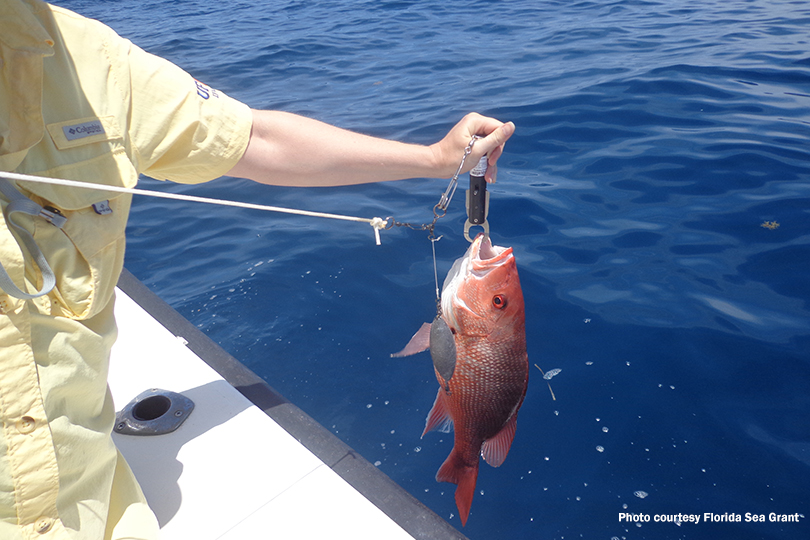By Jessica Domel
Multimedia Reporter
The Texas Parks and Wildlife Commission approved three changes to saltwater fishing regulations for the 2023-24 season.
The changes, according to the Texas Parks and Wildlife Department (TPWD), bring state fishing regulations in line with federal regulations for cobia, shortfin mako sharks and reef fish.
“The purpose of these changes is to reduce confusion for anglers that may be fishing in both state and federal waters and also make for consistent enforcement within state waters,” Dakus Geeslin, TPWD deputy director of Coastal Fisheries, told the commission.
The first change anglers will notice deals with shortfin mako sharks.
“We simply propose to add this species into the prohibited list of shark species for both recreational and commercial sectors,” Geeslin said. “We very rarely see these in our landings. The stock is declining.”
The proposal follows a rule enacted by the National Oceanic and Atmospheric Administration (NOAA) in July prohibiting the landing or retention of shortfin mako sharks in any U.S. Atlantic highly migratory species fishery until further notice.
Anglers are prohibited from catching and keeping 22 other shark species in Texas waters. There are 16 species of sharks anglers may retain.
The commission also approved a reduction in the bag limit for cobia or ling from two fish per person per day to a single fish per person per day.
“This change is proposed to address declining stocks of cobia in the Gulf and really facilitate the ease of enforcement with federal regulations,” Geeslin said.
The department initially proposed limiting the number of cobia a vessel, like a party boat, could catch in a single day, but that proposal was declined by the commission.
TPWD’s harvest monitoring program has not intercepted a vessel with more than two cobia since 2018.
“These facts just illustrate how rare it is in recent years to see a vessel with more than two cobia, suggesting the vessel limit will have an extremely limited impact to Texas anglers,” Geeslin said.
The third, and final, change to saltwater fishing regulations concerns reef fish like red snapper.
“This simply requires anglers to have a venting tool or descending device rigged and ready to use. Research shows this practice really reduces the mortality within this suite of species–deep dwelling fish,” Geeslin said.
The change to state regulations mirrors the federal Direct Enhancement of Snapper Conservation and the Economy through Novel Devices (DESCEND) Act of 2020, which was implemented in 2022.
It requires any commercial charter, head boat or private boat fishing for reef fish to have a venting tool or descending device on board to reduce trauma and discard mortality associating with bringing deeper-dwelling fish to the surface.
Barotrauma symptoms include: the stomach protruding through the mouth, intestines protruding through the anus, bubbling scales, floating on the surface, bulging eyes and bloated belly, according to ReturnEmRight.org.
Anglers who notice fish with barotrauma can insert a venting tool into the appropriate spot on the fish to release a buildup of gases in a body cavity, which helps reduce mortality risk.
Descending devices are weighted instruments. According to Return Em Right, they help a fish overcome buoyancy by releasing them at a depth chosen by the angler where the fish has the best opportunity to survive.
Anglers who watch a training video on ReturnEmRight.org may apply for a free descending device.
TPWD received 164 comments on the rule change, with 86% in support, 9% against and 5% neutral on the proposal.
Those who opposed it said they believe state waters are shallow enough that a device is not needed.
The shortfin mako shark proposal elicited 164 comments with 74% in support, 13% against and 13% neutral.
Those who opposed the rule change indicated they’re against it due to overregulation, recreational fishing not causing the decline, the need for more data and the desire that the regulations only apply to the commercial fishery.
TPWD received 164 comments on cobia (ling) regulation changes. The majority, 87%, of comments supported the rule change, 10% were opposed and 2% were neutral.
Geeslin said those who were against the proposal cited the need for more data, overregulation and said recreational fishing is not causing the decline. Those commenting also said the regulation should only apply to the commercial fishery.
The rule changes go into effect Sept. 1.

